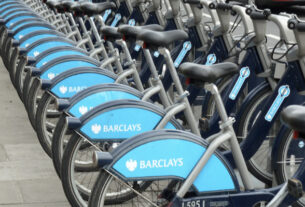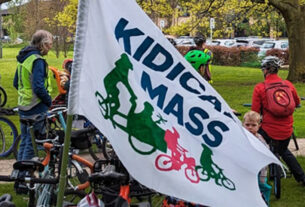Dear RCC members,
At our AGM on 18 August, Reading Cycle Campaign invited Councillors from each of the four political party groupings on Reading Borough Council to discuss questions about improving cycling provision in the town. We were pleased to welcome:
- Jane Stanford-Beale – Conservative, Peppard Ward
- Ricky Duveen – Liberal Democrat, Tilehurst Ward
- Paul Gittings – Labour, Minster Ward and Chair of Strategic Environment, Planning and Transport Committee
- Rob White – Green Party, Park Ward
We sent out three questions in advance that we wanted them to discuss, which were:
- What in your opinion is the main reason why many people do not cycle in Reading?
- What would be the most effective way to get more people cycling?
- What is the biggest obstacle to doing this?
It was good to listen to a debate where there was not a lot of political point scoring and where the issues were actually addressed and there was a surprising level of agreement among the panel as to why people do not cycle more.
They all seemed to agree that encouraging cycling was a good thing. What was stopping more people from getting on a bike was the feeling that it was not safe due to the high volumes of traffic and congested roads. Jane pointed out that Reading was quite hilly for easy cycling and Ricky pointed a finger at the poor state of the roads.
Paul made the important point that Reading’s road and transport infrastructure had grown up around the needs of motorists and other road vehicles. This meant that major changes could not become effected overnight, but that the Council have provided a bus service that is one of the best in the country.
On the point of what should be done there was less agreement. Jane was for making better use of existing provision via shared use pavements such as the Kennetside path. Rob and Ricky were for much more investment in dedicated cycle routes which would separate cyclists from other traffic. Both of them felt that an enforced town wide 20mph speed limit would make a difference. Ricky went as far as suggesting that we do away with on-street parking and provide secure bike parking in the town centre.
Rob wanted to see travel audits used to show who goes where and why and also much more consultation before plans are drawn up. He felt that we needed a major change in the behaviour of motorists with a campaign to reduce close passing of cyclists as well as a reduction in speeds.
Paul’s view was that, yes, we needed a better cycling infrastructure, but we should get better at putting over the message of the benefits of cycling; that would be a great help.
On the question of what was stopping these changes from happening, there was less agreement. Rob was of the view that there was a lack of ambition at both local and national levels for tackling these issues and that a change of attitude towards all transport and travel policies was needed.
The others, especially Paul, felt that funding was a major constraint. He pointed out that the fallout from the government’s austerity measures has left a huge hole in the Council’s budgets and that they were now reliant on funding from the Department for Transport (DfT) for each specific project.
He told the meeting that time scales were often so short that in order to get any funding full consultation could not be carried out. It was not in his opinion a lack of ambition, but the budgetary and time constraints imposed on RBC by the government, especially the DfT, that made major improvements difficult to achieve.
So what did we learn from the debate? We learned the Greens and the LibDems are keener to spend money on dedicated provision than the other two parties.
We also learned that improvement schemes are often decided on the basis of which cause the least objections rather than which contribute the most benefits, and we learned that the Council really does have one hand tied behind its back where funding is concerned.
Joe Edwards
RCC Chairman
chair@readingcyclecampaign.org.uk


